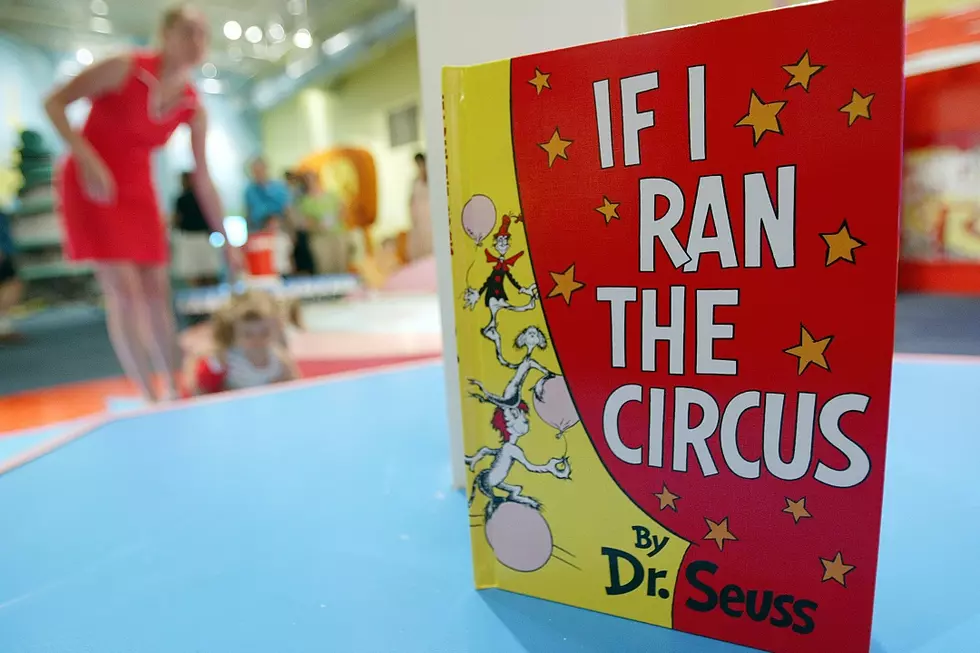
Was Dr. Seuss Racist? Some of His Children’s Books Are Being Pulled From Publishing
Was Dr. Seuss racist?
The beloved, late American children's book author, who passed away in September 1991, is under fire for the racist and insensitive content included in some of his books.
On Tuesday (Mar. 2), Dr. Seuss Enterprises, the company that preserves and protects the author's legacy, released a statement confirming that six Dr. Seuss books will stop being published due to racist and insensitive imagery.
"These books portray people in ways that are hurtful and wrong," Dr. Seuss Enterprises told The Associated Press on the late author and illustrator's birthday.
"Ceasing sales of these books is only part of our commitment and our broader plan to ensure Dr. Seuss Enterprises' catalog represents and supports all communities and families," it said.
Did Dr. Seuss Have a History of Racism?
Dr. Seuss (real name Theodor Seuss Geisel) had a long history of publishing racist and anti-Semitic work. According to a study titled The Cat is Out of the Bag: Orientalism, Anti-Blackness, and White Supremacy in Dr. Seuss's Children's Books published in the journal Research on Diversity in Youth Literature in 2019 — which examined 50 of Dr. Seuss’ books — 43 out of the 45 characters of color he created have "characteristics aligning with the definition of Orientalism," or the offensive portrayal of Asia. The study also found that two "African" characters both have anti-Black characteristics.
According to CNN, Dr. Seuss’ racist history spans as far back as the 1920s when he was a student at Dartmouth College where he drew Black boxers as gorillas and “perpetuated Jewish stereotypes by portraying Jewish characters as financially stingy.”
Which Dr. Seuss Books Have Been Pulled From Publishing?
The six Dr. Seuss books that have been pulled from publishing and will no longer be licensed are:
And to Think That I Saw It on Mulberry Street
If I Ran the Zoo
McElligot's Pool
On Beyond Zebra!
Scrambled Eggs Super!
The Cat's Quizzer
A study called The Cat Is Out of the Bag reports that in The Cat's Quizzer, a character who is meant to be Japanese is simply referred to as “a Japanese,” has a bright yellow face and can be seen standing on what appears to be Mt. Fuji.
The study points out another example of Orientalism and White supremacy in If I Ran the Zoo.
"The three (and only three) Asian characters who are not wearing conical hats are carrying a White male on their heads in 'If I Ran the Zoo.' The White male is not only on top of, and being carried by, these Asian characters, but he is also holding a gun, illustrating dominance. The text beneath the Asian characters describes them as 'helpers who all wear their eyes at a slant' from 'countries no one can spell,'" the study authors wrote.
The study also argues that since the majority of human characters in Dr. Seuss' books are White, his works inadvertently perpetuate White supremacy.
Have Any Schools Banned Dr. Seuss Books?
There is growing unease among school districts over how Dr. Seuss’ work has depicted racism. Earlier this week, a school district in Virginia made headlines for allegedly banning his books.
"Research in recent years has revealed strong racial undertones in many books written/illustrated by Dr. Seuss," the school district said in a statement. “Dr. Seuss books have not been banned and are available to students in our libraries and classrooms, however, Dr. Seuss and his books are no longer the emphasis of Read Across America Day.”
There are currently no schools reported that have banned Dr. Seuss books entirely.
What Does Dr. Seuss' Family Think?
Leagrey Dimond, one of the author's stepdaughters, told TMZ that she believes Dr. Seuss books should not be censored or pulled from public, and instead thinks the six questionable titles should receive disclaimers.
She also told the tabloid that while Dr. Seuss' early work may have included some harmful depictions, his legacy has largely been positive and that he did, in later years, publicly express regret for any problematic imagery he created.
How Does Dr. Seuss Fans Feel About the Controversy?
Dr. Seuss fans have mixed thoughts about the controversy. Many are glad that the author’s estate has chosen to discard any publications that have racist depictions. Other fans are angry that their favorite childhood books are being ripped from shelves and do not agree with Dr. Seuss getting “canceled.”
See some reactions, below:


